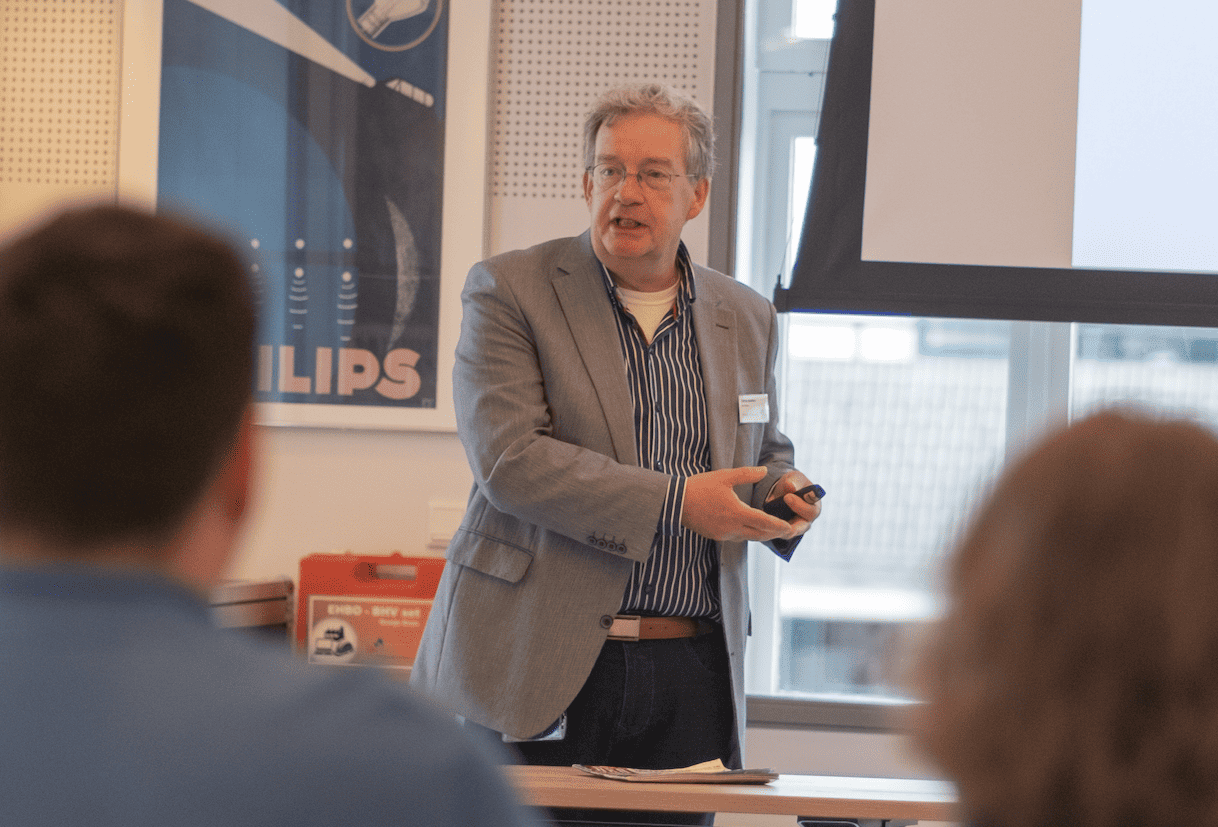
“Hello, my name is Fons. I’m just a citizen.” The Loneliness table is becoming quite a full one. Two civil servants, a managing director, a young researcher from Groningen and a reporter. And Fons, together with his wife. Probably also just a citizen, but that is just a guess.
This motley crew is one of eight groups during the design session DATA deserts. An assembly organised by DATAstudio (a collaboration between Het Nieuwe Instituut and the municipality of Eindhoven) in the Design House.
The purpose of this session is to visualize subjects that are difficult to measure in society. Subjects that are missing digital data. What are these subjects? DATAstudio visited two neighbourhoods in Woensel last summer and spoke to some residents. To find out what is really going on in a neighbourhood, that remains invisible to this day. Four themes came up: loneliness, social inclusion, the relationship between government and citizen, and fear of change.
Under the title “The State of Eindhoven”, E52 brings a series of stories about the steps the city takes towards a smart society and the connections within, between big data and the inhabitants. Read the whole series here.
These are the key themes during the session. What do we know about these subjects? And most importantly: what don’t we know? Or in jargon: Where are the data deserts? And how can you then use this information?
The Loneliness Table is getting started, among other things, with the neighbourhood survey which is taken annually by the municipality. A list including questions about the facilities in the neighbourhood and the network around the people. The municipality already has quite a lot of knowledge about the neighbourhood, but does it know how many people are feeling lonely? And how can they find out? “Why don’t they just ask the question: are you lonely?”, someone suggests.
It is time to close round one and to pitch the results. A panel, with among others a technology philosopher and an intelligence analyst from the municipality of Eindhoven, is giving comments.
On behalf of team Loneliness, Fons stands up. “I also feel lonely sometimes. Especially when I’m at a party.” With this personal experience Fons expresses what keeps coming up in the discussion: loneliness is something intangible and it is not easy to just put in a database. Unfortunately it is also not fixable by building a community centre or a tennis club.
The philosopher is listening to the pitches with his eyes closed. When he looks up, there is a sparkle in his eyes. He is hearing one philosophical question after the other.
The second round is all about how you can find the missing data. Or, to keep using jargon: how to water the data desert? Everyone agrees that the neighbourhood already knows quite a lot, but they just can’t link all the data together. A big bear is on its way to a better utilization of data: privacy.
The discussion is already leading to other questions. For instance what you should do with all that information? What should you do as a municipality or a resident when you know that there is a lot of loneliness in a neighbourhood?
The philosopher is responding and points out the responsibility that comes with knowledge. People need to be careful with indiscriminately gathering data, especially the government. As soon as a problem is addressed and nothing happens with it, there is a big chance for frustrations in a society to grow.
The session in the Design House doesn’t give a ready made implementation for the ambitions of the municipality of Eindhoven to be a smart society as well as a participation society. It does however give new insights and ideas that deserve a sequel. One of the attendees launches a new term: data dignity. How do we handle all the data we gather in a dignified manner?







